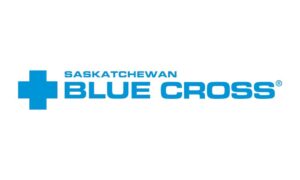Climate change makes property underwriting less commoditised: Beazley

London headquartered insurance and reinsurance group Beazley has announced its results this morning, making some interesting statements about climate change and how this is changing the property insurance and reinsurance underwriting landscape.
While the company has now buried visibility of its third-party capital backed market facilities and the so-called Smart Tracker special purpose syndicate, after it reorganised its underwriting divisions earlier this year, Beazley still tends to submit commentary that has a broad read-across, in terms of relevance, including to the insurance-linked securities (ILS) market.
Today’s comments are particularly relevant, as they underline a theme we’ve been tracking, which is the de-commoditisation of catastrophe risk, or the industry’s realisation that it was perhaps never as commoditised as it thought.
Climate change has changed the property underwriting game, seems to be Beazley’s view on this.
The company reported a “relatively low frequency of natural catastrophes” through the first-half of 2022, resulting in its newly reorganised property and reinsurance division delivering a combined ratio of just 77%, far better than the prior year’s 101%.
As a result, profits for the division more than doubled to $44.1 million.
Beazley feels that the climate change is changing the property exposure profile, it appears, making it increasingly confident in its ability to add value there.
“As climate change makes underwriting property more complex, and therefore less commoditised, this combined property book will be able to respond more effectively,” Adrian Cox, Chief Executive Officer of Beazley wrote in the results statement released this morning.
Beazley has an appetite to grow this business it now seems, which is likely partly in response to the improved rate environment for catastrophe exposed risks and property insurance and reinsurance in general, but also it seems the company is confident in its ability to add value in a changing climate.
“We are well positioned to grow the business, particularly in the United States where we are focused on building a broad and diversified portfolio that balances business which has large natural catastrophe exposure against risks which do not, particularly outside onshore US property,” Cox further explained.
Most Lloyd’s underwriters have pulled-back on property exposure in recent years, but perhaps the hard market in reinsurance and cat risk in general is going to change that trend?
Beazley is putting work into understanding climate and so how property risks become less-commoditised.
“To manage the threat climate change poses to the physical and litigation environment we are investing in external modelling and our own models of physical climate impacts at a location level to span over 25 years,” Cox said.
Catastrophe risk was thought to have become more commoditised with the advent of greater capital market participation and more advanced risk models making it easier to participate.
But Beazley clearly feels the landscape is changing with climate change and that this is changing the risk profile, making internal expertise and risk knowledge, as well as modelling and underwriting ability, absolutely key for those targeting property and catastrophe risks.
Of course, the ILS fund market knows this all too well, hence the significant investments into modelling, actuarial and underwriting tools, expertise and processes in recent years.
While risk may have seemed more commoditised, the need for expertise to write it and create truly defensive portfolios of risk that can perform through cycles, in all but the most extreme loss years, has always been there.
A de-commoditisation may be currently underway, in terms of a realisation of the complexity inherent in catastrophes, weather, our climate, and also social inflationary effects, on property exposure.
But, we do believe that risk will become more easily valued, traded, sliced, diced and distributed or syndicated, in time, so what many view as commoditisation is likely to be a trend that continues under the theme of innovation across the industry.
For companies like Beazley though, we’re likely to see other major re/insurers pushing a similar message, the opportunity to rebuild a moat around property and especially catastrophe risk, by explaining the rising complexity of the world and the process to underwrite it, makes perfect sense as a message or mantra at this stage of the market cycle.
Which could mean, in the current harder market pricing, we see firms like Beazley building out their property and cat books more, as Cox implies in his statement suggesting growth of this business segment is ahead.
Which means perhaps we will see more opportunities for third-party and ILS investors to work with Beazley and perhaps we’ll even see that Beazley sponsored catastrophe bond one day.




